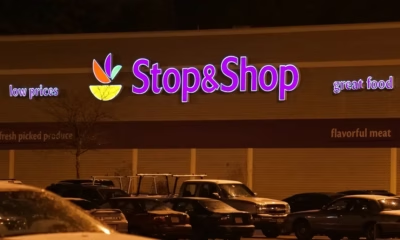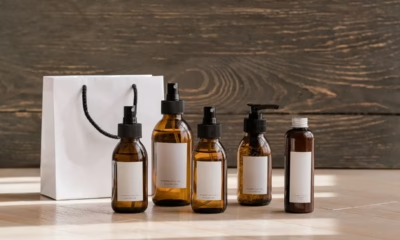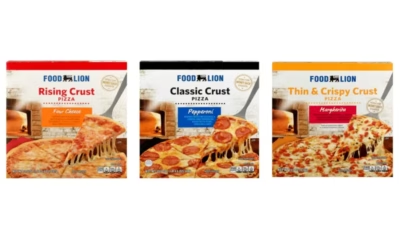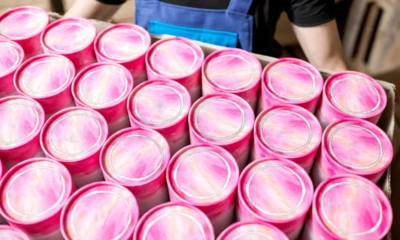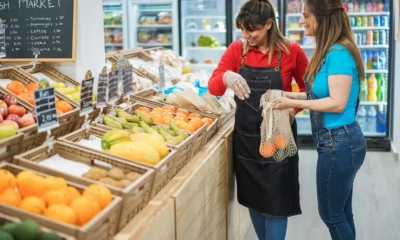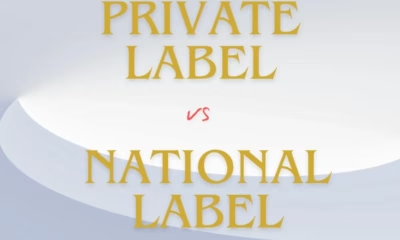Private Label
Store Brands Gain More Ground in Market Share

Store Brands Continue to Gain Market Share in 2025
Shoppers Choose Private Label Products Over National Brands
More U.S. consumers are choosing private label products, helping boost store brands market share across major retail categories. According to recent data, store brand sales have far outpaced national brands in growth rate this year.
Research from the Private Label Manufacturers Association (PLMA) and Circana shows that store brand dollar sales increased by 4.4% year-over-year. In contrast, national brands grew only 1.1% during the same period. These numbers clearly show a shift in consumer preference toward value and quality offered by private labels.
Store Brands Dominate in Key Food Categories
Refrigerated foods led the way for private label growth with a 10.5% increase in dollar sales. Frozen foods, beverages, and pet care also saw notable gains. Consumers are embracing store brand innovation as retailers expand and refresh their private label offerings.
Unit sales rose in eight out of nine departments. This performance highlights consistent strength in private label strategies, especially in essential and daily-use categories.
Store Brands Market Share Hits Over 21 Percent
Private label items are no longer second choices. PLMA reports that store brands market share now stands at 21.2% in dollar terms. Their unit share has reached 23.2%, meaning nearly one in four items sold comes from a store brand.
Retailers have capitalized on this momentum. They are releasing new private label products that cater to both affordability and taste preferences. This includes seasonal launches and premium-ready meals.
Retailers Lead Growth With Strategic Assortments
Major chains like Target and Albertsons are accelerating store brand innovation. Target introduced several new private label items this summer, such as Favorite Day peach cobbler ice cream and hot chili lime popcorn.
Meanwhile, Albertsons launched its Chef’s Counter brand, offering ready-to-cook marinated meats. These product introductions aim to attract busy shoppers looking for convenience without sacrificing quality.
M&A and National Brand Slowdowns Boost Private Label Appeal
Traditional CPG brands have struggled in 2025. Mergers, acquisitions, and even bankruptcy filings have raised concerns about pricing and product availability.
As a result, value-minded consumers have leaned more heavily into private label alternatives. Store brands are seen not only as budget-friendly but also as reliable and innovative.
What This Trend Means for the Future of Retail
This momentum shows no signs of slowing. Store brands now compete head-to-head with national brands in both quality and brand loyalty. Retailers are investing more in branding, packaging, and product innovation to keep the edge.
Shoppers, in turn, are discovering that private label no longer means compromise—it means smart choices.
Stay Informed, Stay Prepared
Explore the latest grocery news, shopping tips, and updates on food prices by browsing our most recent articles.
Also, visit our sister sites for even more trusted content:
http://MyPersonalCareWorld.com – Stay informed with the newest trends and tips in beauty, skincare, and personal wellness.
http://MyHomeCareWorld.com – Practical advice and inspiration to help you care for and maintain a comfortable home.
http://MyHomeDecorWorld.com – Turn your dream home into reality with stylish ideas and interior design inspiration.
http://MyBabyCareWorld.com – Discover expert-backed baby care tips, product guides, and advice to support your child’s health, safety, and happiness.
Your everyday essentials, all in one place—start exploring now.

